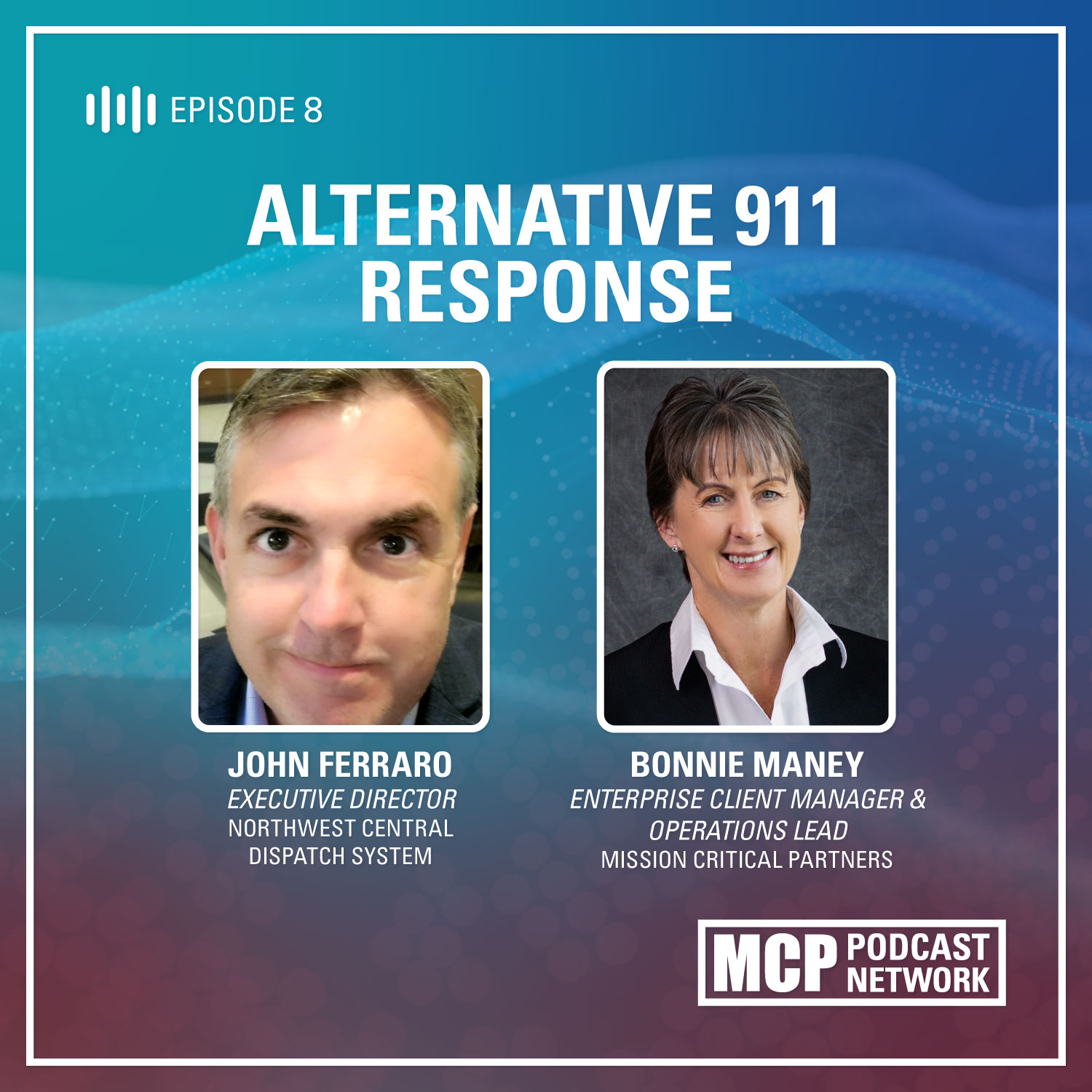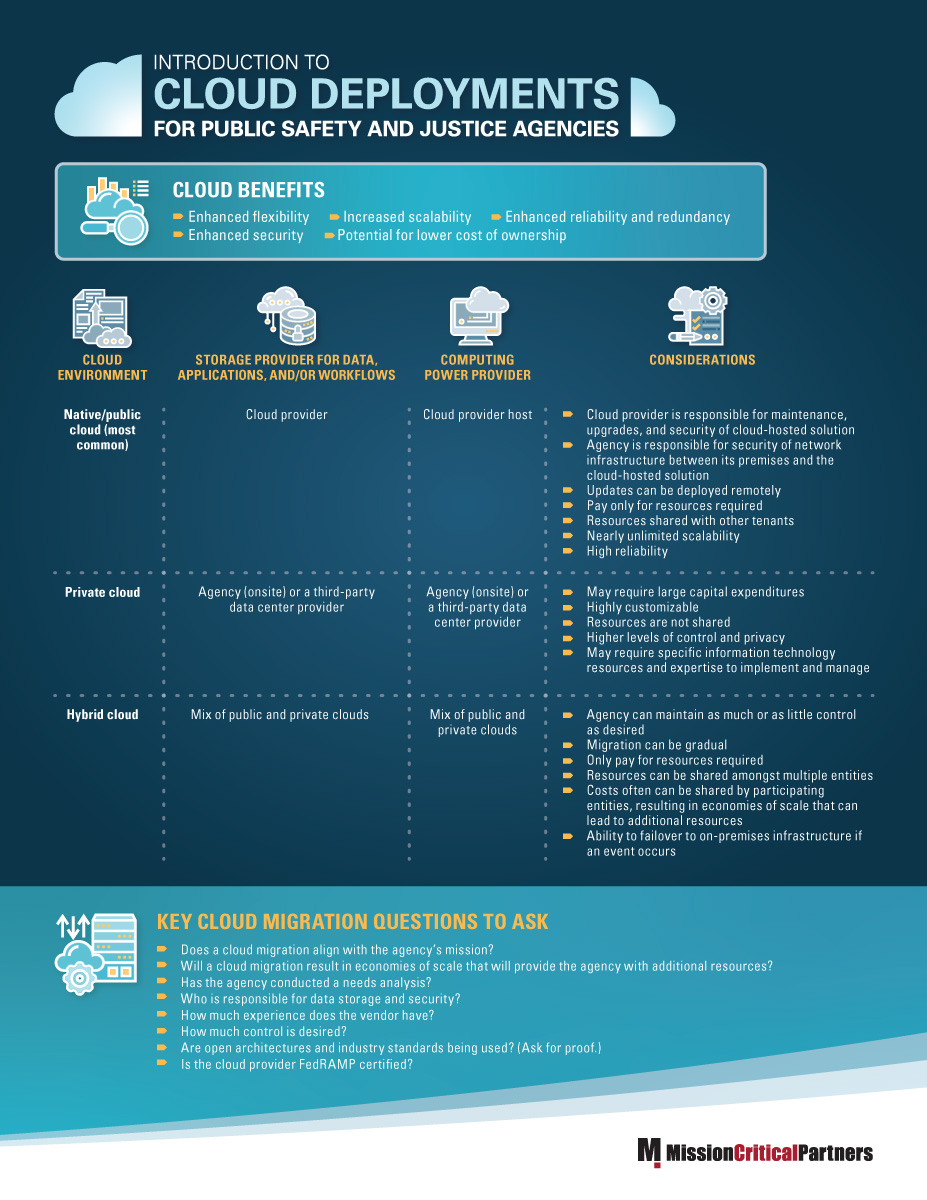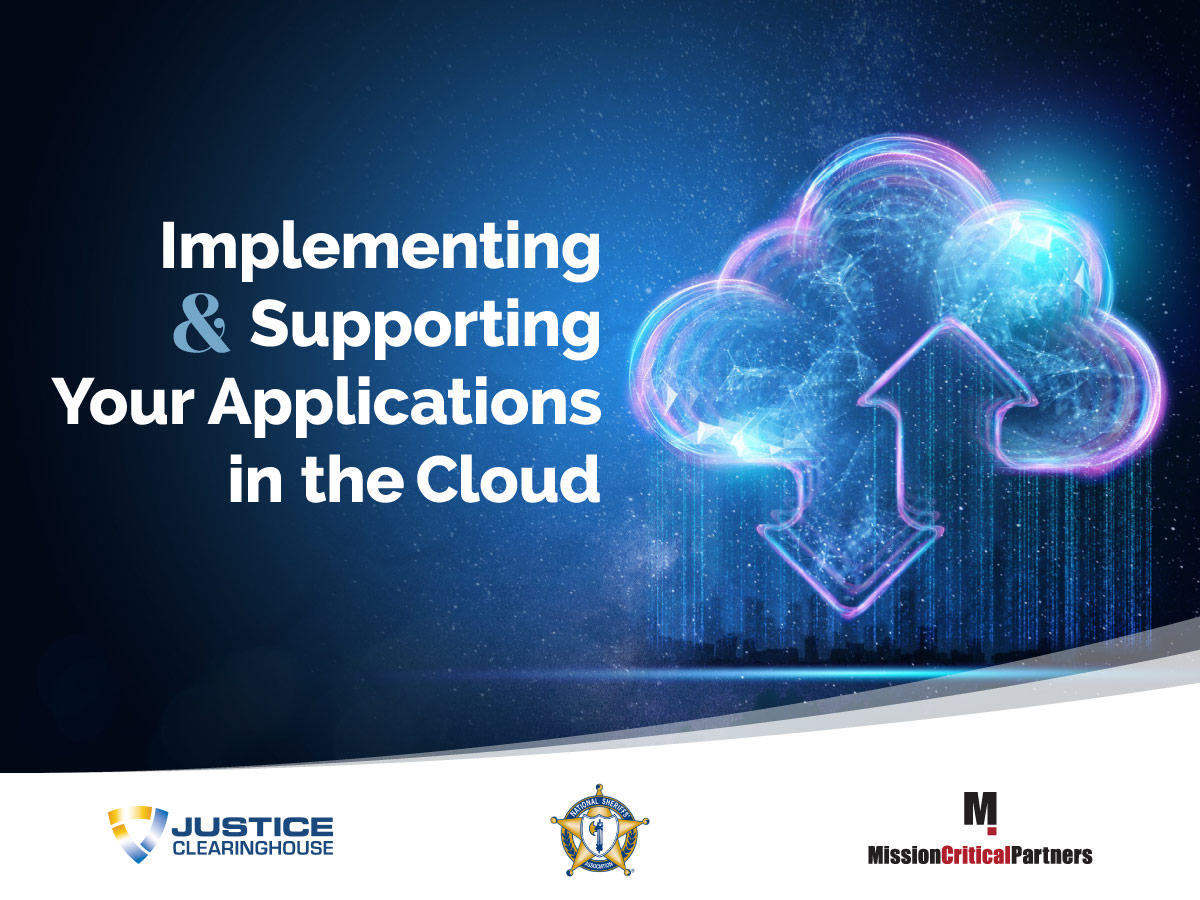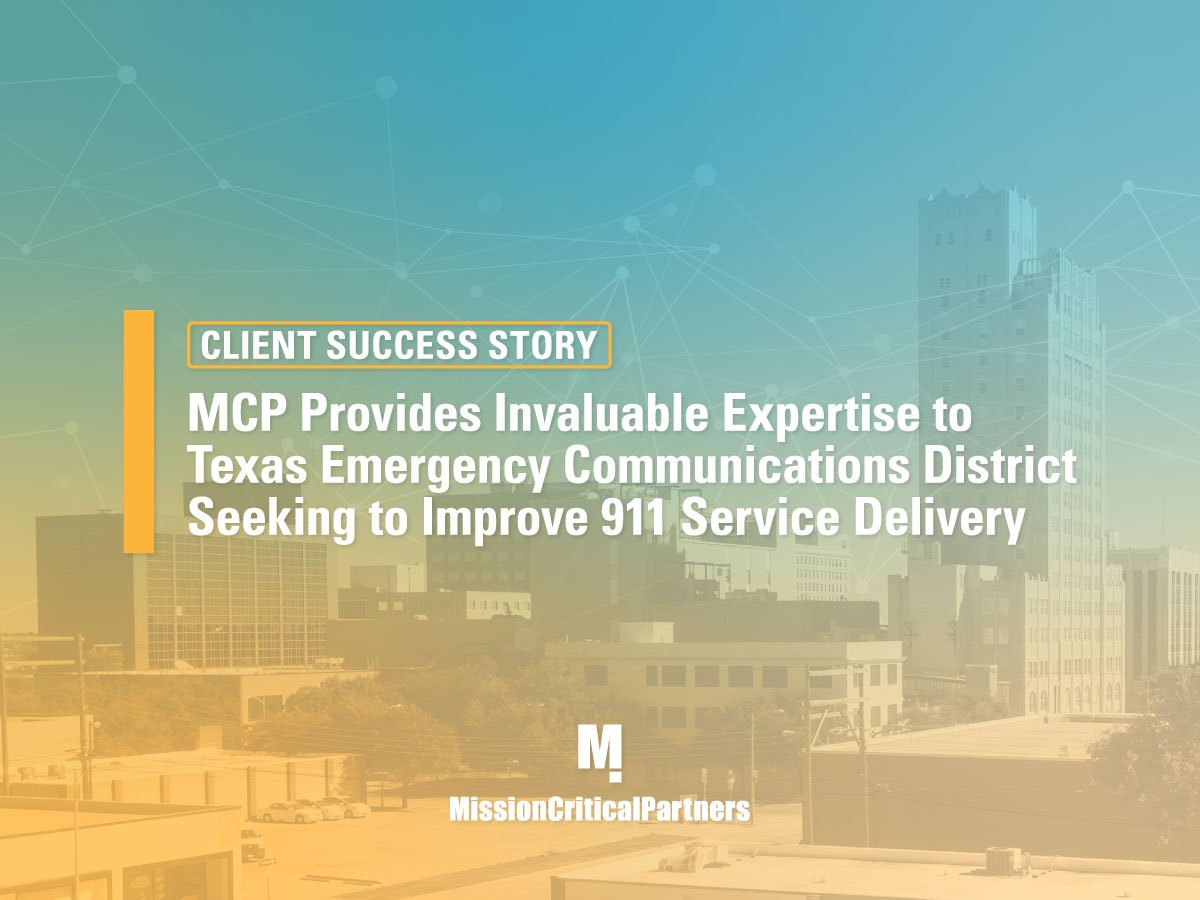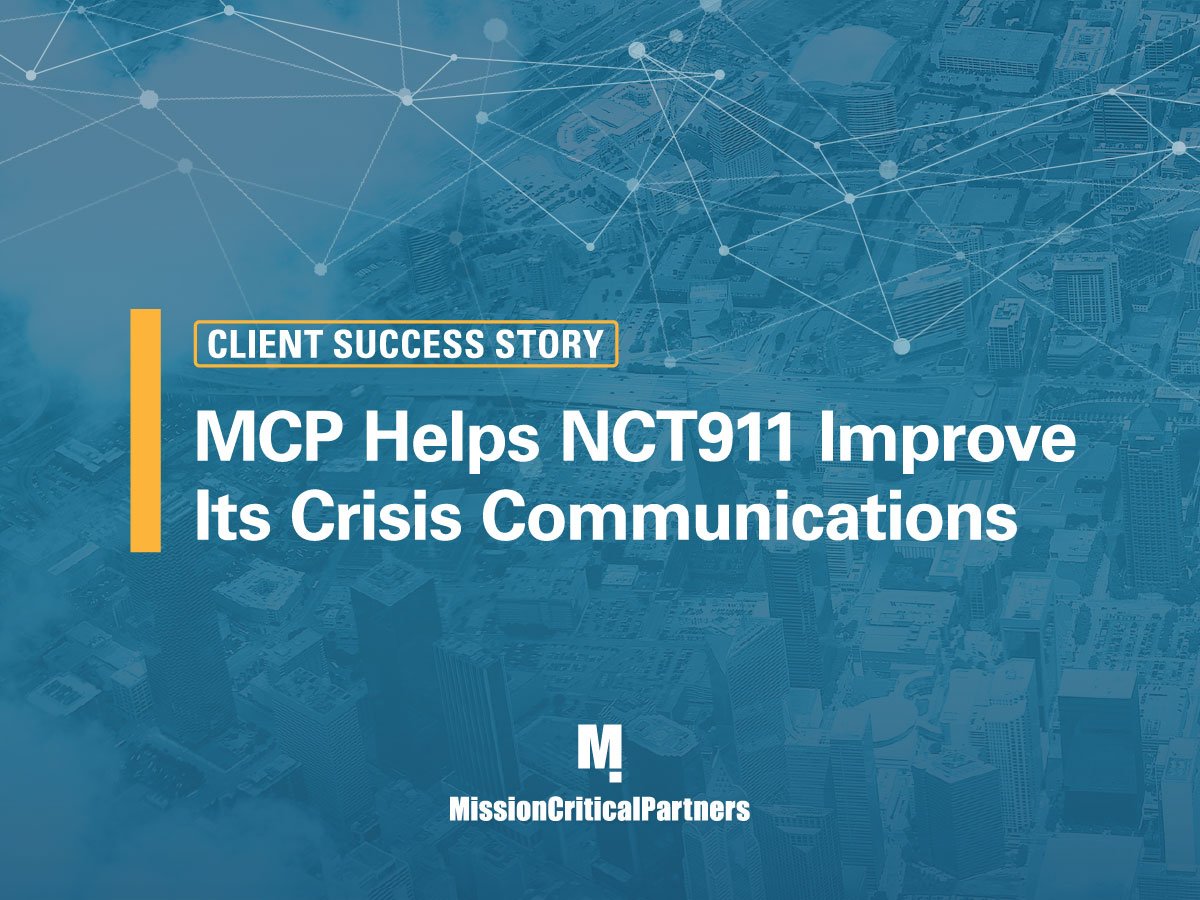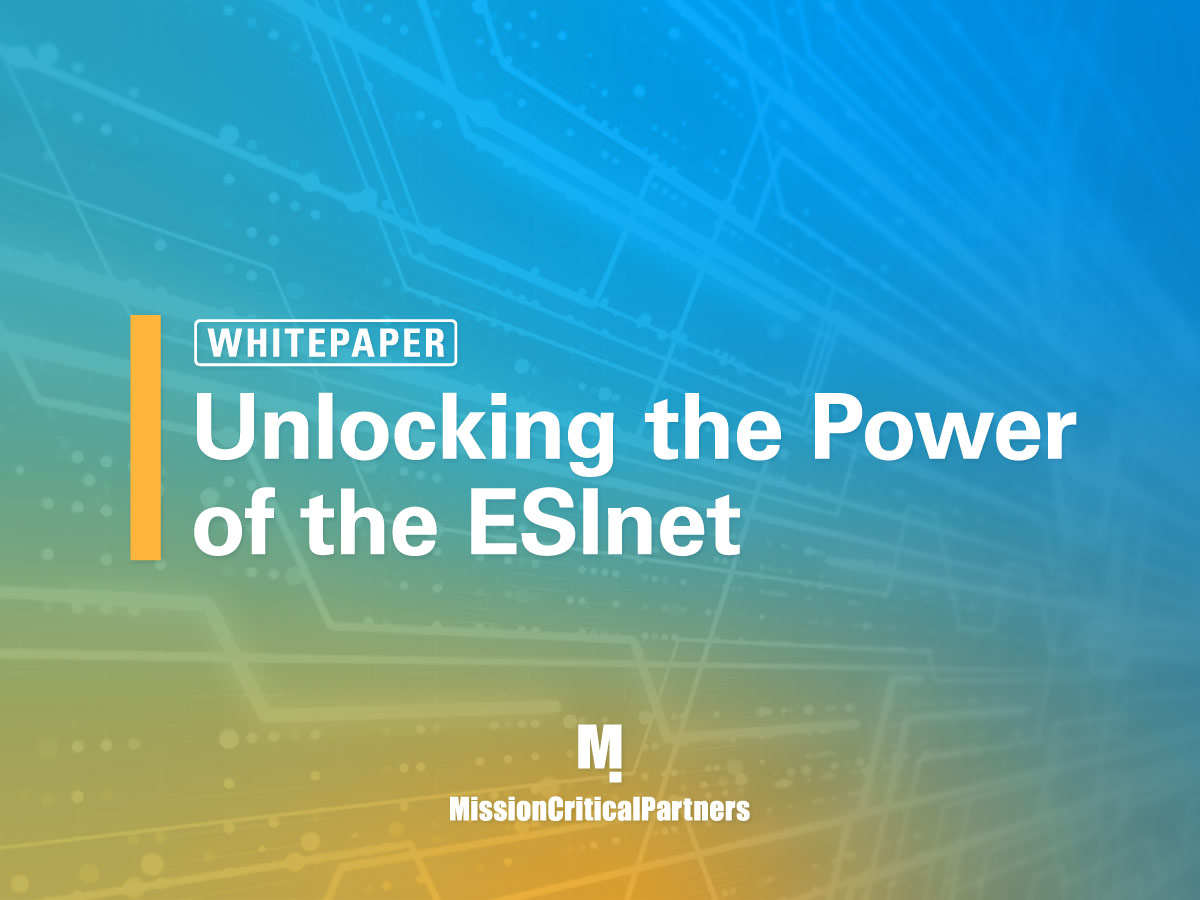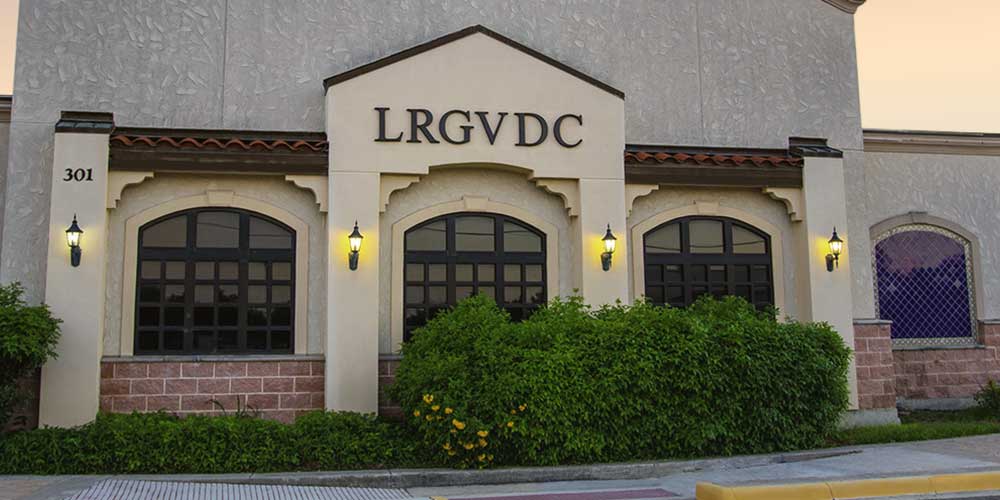MCP Podcast Network Episode 8: Alternative Policy Response
MCP's informational podcast series features the firm’s subject-matter experts and other industry leaders exploring a wide range of timely topics pertaining to mission-critical communications.
On this episode of MCP Podcast Network is entitled “Alternative Response Strategies for 911 Centers." This episode features Executive Director for Northwest Central Dispatch System in Arlington Heights, Illinois, John Ferraro, and Mission Critical Partners' Operations Manager, Bonnie Maney, for an engaging discussion on how public sector organizations are evolving and how the transformation will result in improved outcomes in the communities they serve.

